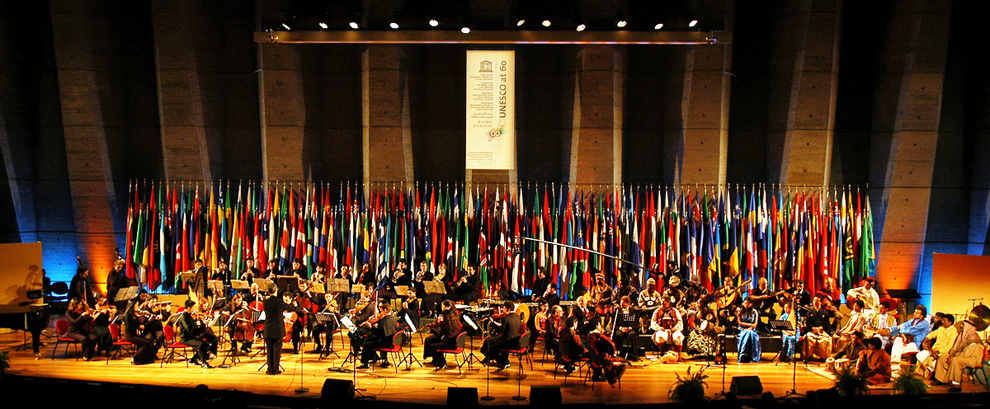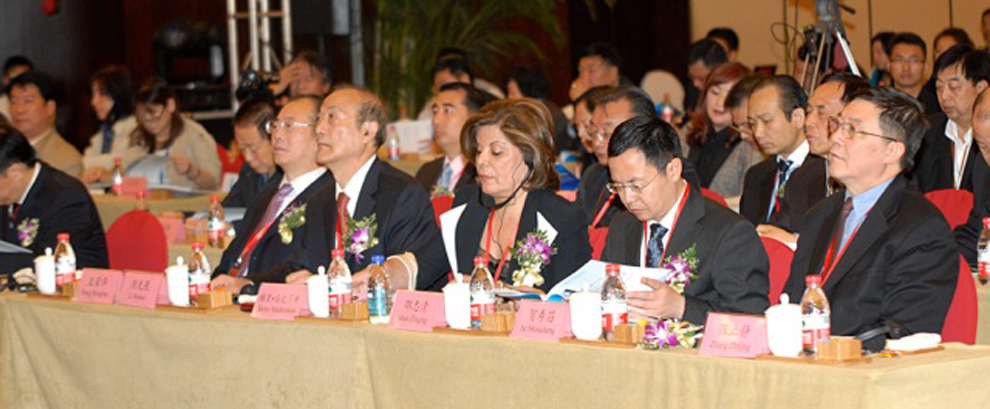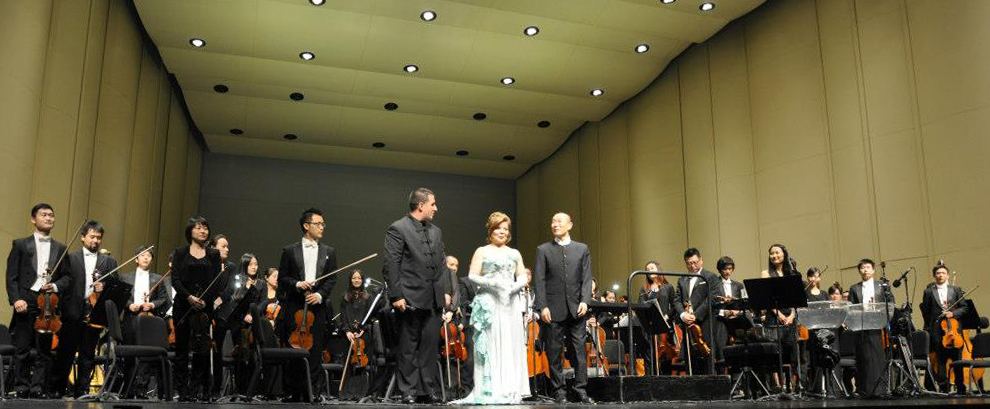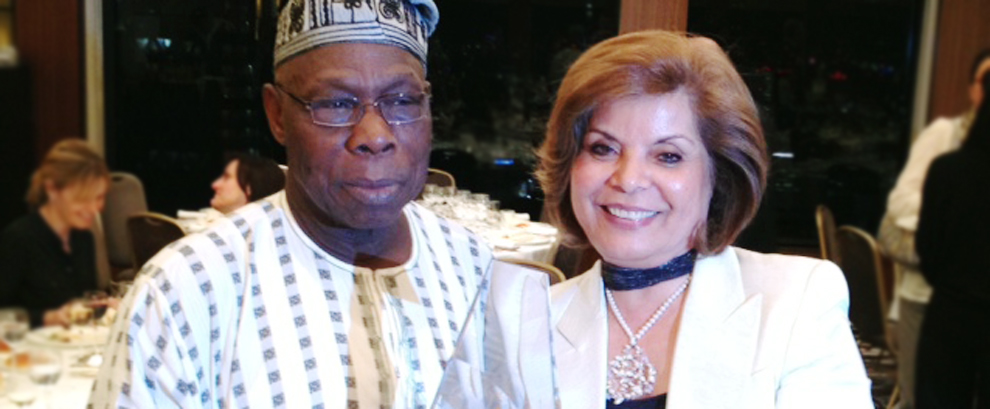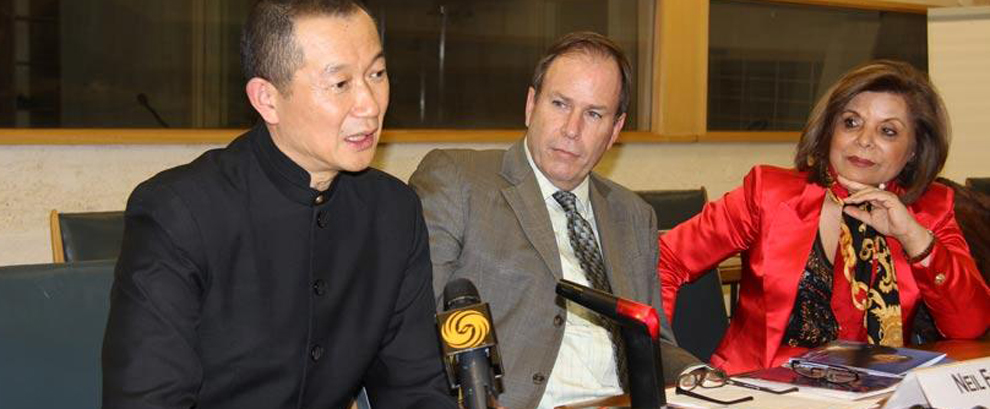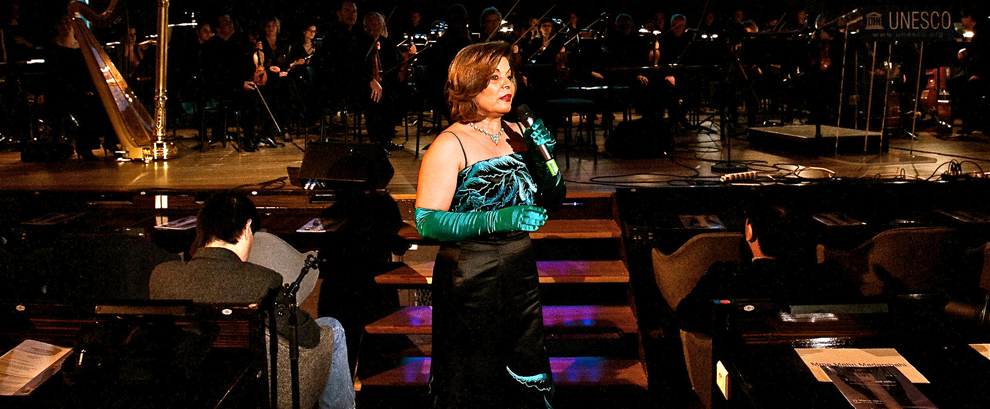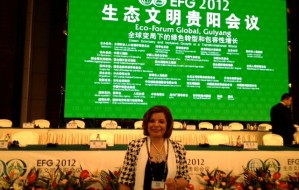
ECO FORUM GUIYANG
July 26, 2012
Guiyang, China
Presented by Mehri Madarshahi
Good afternoon – welcome to the third meeting organized by the Melody for Dialogue among Civilizations Association in collaboration with UNESCO on the challenges of sustainable water management for today and for the future.
Before beginning my presentation, let me take this opportunity and thank the organizers of the Guiyang Eco-Forum for their invitation. We are proud and honored to be part of this important event.
Our focus today is all about water: a precious non-renewable source of life for today’s 7 billion inhabitant of earth. As we speak – one out of seven people in the world are without access to fresh water! Concerns about water as a critical element for continuation of life has yet to capture our imaginations and the deserving headlines in newspapers and media reports.
The average person thinks that since we live on a planet covered by water we may never face a water crisis. This average person, however, is not aware that, more than 97 percent of what is considered water is undrinkable, and out of the remaining 3%, two percent are locked up in glaciers. This leaves less than one percent for growing our crops, cooling our power plants and supplying our drinking and bathing water. Rapid population growth, pollution, urbanization and economic development have also led to growing demand for and thus pressure on water resources.
With water demand exceeding water supplies, water shortage has become more prominent in many developed and developing countries. A global water shortage is looming high and more than 40 per cent of the world’s population are dealing with some form of water scarcity. Northern Africa and Western Asia are seriously compromised, as are some regions within large countries, such as China and India.
Climate change is adding new challenges to urban water management. According to some estimates, the changing climate could account for about 20 per cent of the increase of the global water scarcity. Although the precise impact of climate change on freshwater resources is still unknown, more erratic rainfall and extreme weather conditions, such as floods, droughts, mudslides, typhoons and cyclone, may cause irreversible damages to water supplies.
Lately, floods and droughts have been the name of the game. Floods disrupted thousands of homes, businesses and infrastructure in Thailand and Cambodia and now in China. The Texas drought cost more than $7bn in agricultural losses and caused disruption to the world’s major cotton and corn-growing regions doubling the global costs of this commodities. The on-going drought in the Horn of Africa has so far claimed thousands of lives and the list goes on.
One of the pressing issues of the 21st century should, therefore, be to resolve how we share and preserve this limited crucial and non-renewable source of life on our blue planet.
To achieve this important goal we must look at water in all its dimensions.
Water is a development issue.
Over one billion people in the world have no access to clean water and 2.5 billion people lack basic sanitation. In many corners of our planet, approximately 5,000 people die each day from causes linked to unsafe water, sanitation, and hygiene, and most of them are children. Millions of women and girls walk for hours every day to collect water for their households, and some of them put their very lives and physical safety at risk. This means loss of precious time for education and for economic participation·
A growing number of rivers do not make it to the sea. There is widespread surface and groundwater contamination that makes valuable water supplies unfit for other uses. By 2025, it is predicted that as much as two-thirds of the world’s population, will be living under water stress. And that will, in turn, both undermine and impede socio-economic development.
Water could also be seen as a security and conflict issue. Disputes over water resources in part of the world such as the Middle East could serve here as an example, but also the implications of the melting of glaciers in the Himalayas and the management of Tibetan Plateau’s vast supply of freshwater – is also emerging at the center of the increasingly tense political and cultural strife between many Asian countries including China.
Water security has been considered a matter of economic security, human security, and national security, since it encompasses potential for increasing unrest, conflicts, and instability on a domestic, regional and international scale.
Water is also an energy issue: There is a close linkage between water and energy . Water is used to cool steam electric power plants – fueled by coal, oil, natural gas and nuclear power – and is required to generate hydropower. Water is also used in great quantities during extraction, refining and production of fuel. Most municipalities use up to 30 percent of their energy to transport water or use water to generate electricity to meet the needs of their citizens. A shortage of water can inhibit energy production. Power plants in e.g. the United States withdraw 143 billion gallons of fresh water every day. This is more than the amount withdrawn for irrigation and three times as much as is used for public water supplies.
Water is further an international law issue. As early as 1976, the UN sponsored an international conference on the right to clean potable water and continues to exam whether access to clean drinkable water is a human right to be recognized in international law
Then, water is a technology issue: The need for low-energy, renewable solutions for energy production and clean water is increasingly apparent as global population expands and natural resources are stretched. The new innovation in technologies including Drip irrigation, desalination plants and other advances may produce the very needed “blue” technology comparable to the presently heralded “green” technology.
Water is a public health issue. Water –born diseases like typhoid or e-coli affect citizens in both developed and developing nations alike.
As was emphasized at the Rio+20 conference, water is a conservation and environmental issue. It involves “hard path” solutions focusing on how to develop new supplies with pipelines to deliver water and “soft path” environmental solutions that include conservation, efficiency, infrastructure, protection of eco-systems and management of watersheds.
Reducing water pollution in urban areas is a key component of urban water management. Water pollution has become one of the most acute problems in the cities around the world. Some 2 million tons of waste per day are disposed of into waters with a direct impact on human health and on the sustainability of ecosystems.
Water is a shared public good and must be regarded as such. On the road to sustainability all stakeholders from private to public enterprises as well as individual citizens must consider it as a high priority in their agenda. The business community therefore, should be encouraged to use the impending crisis as a great motivator. Savvy and responsible companies from nearly all sectors, along with investors and insurers, should take action to secure their bottom lines by helping innovations and finding solutions for sustainable water resources.
Equitable and sustainable management of shared water resources requires flexible, holistic approach by institutions, who are able to respond to hydrological variations, changes in socio-economic needs and societal values. The strategic response to the above scenario is a well-designed Integrated Water Resources Management
It is my hope that here in Guiyang we can have a meeting of minds and develop visions and recommendations on how to improve water management and ensure its sustainability in Asia and China.
I also hope that the discussions held by this panel could inspire collaborative efforts to reach out to communities and diverse stakeholders in countries around the world. This will not only entail traditional style conferences, but also by utilizing new means of communications, including the assorted social media. Every voice counts and every effort in conserving water must be tried.
It is unfortunate that the bad news of today are no longer perceived as bad news: we are living in an unsustainable way and there is abundant scientific evidence to back this up. But do we care enough to change our behavior and our life-styles?
Environmental protection is too important to be left to governments and the private sector alone. It must, therefore, become more of the responsibility of public at large- so as to reclaim their right to live in a clean and healthy environment. The success of such sustainable policies depends on broad-based public awareness and education. Little thought is being given to where to start in reversing these pernicious trends and how to ensure people participations and awareness campaigns to create advocacy for action to bring about a blue and carbon-free society. For these and more, We need a new grand strategic design.
Reaching out to and mobilizing committed people has become the central objective of my Association. We have concluded that the Puzzle of communication in our globalized world could be resolved by using the universal language of music. Music can transcend from its traditional role as a means of entertainment and become an advocate for social change. Music as a soft power of culture is eminently well suited for this task. I hold that music must deserve a larger space in our complex world and in the international cooperation. As the Greek philosopher Plato once said: “Music gives a soul to the universe, wings to the mind, flight to the imagination, and life to everything”.
Thank you Mr Chairman.


